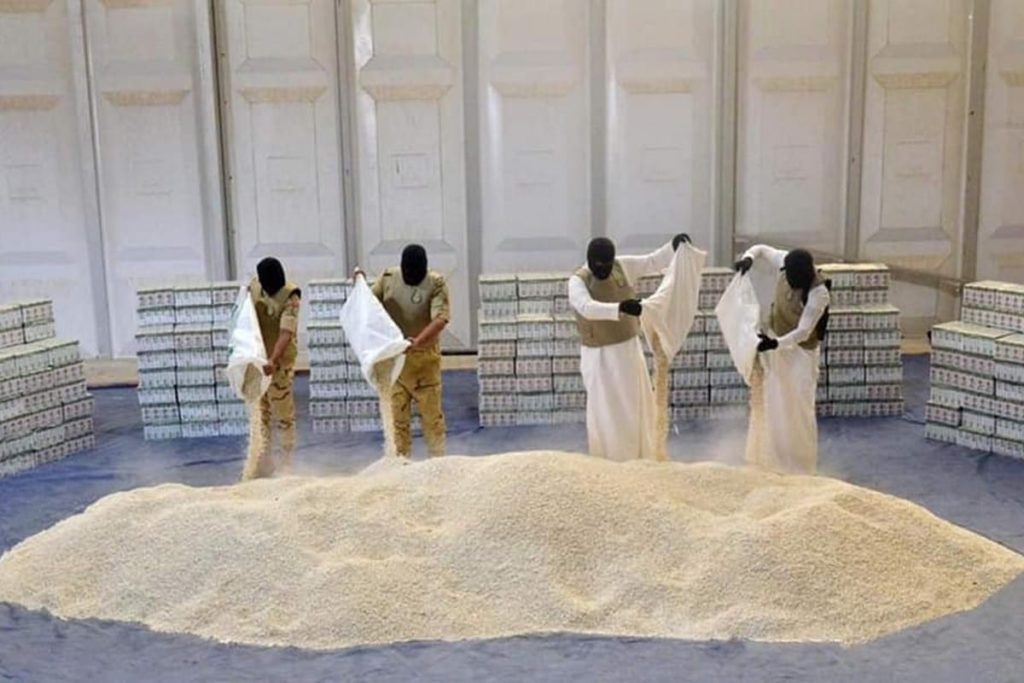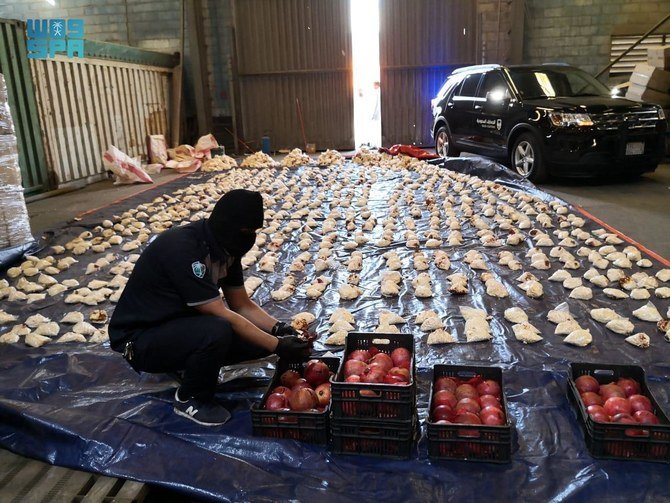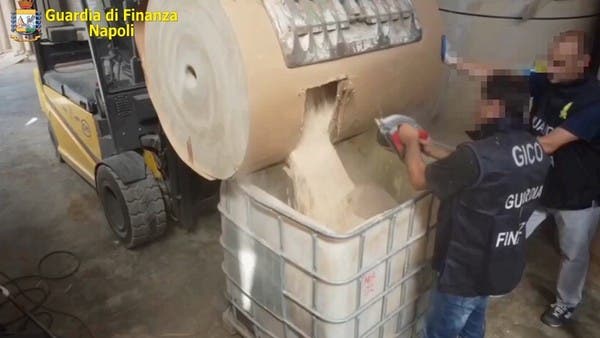LONDON: Al Arabiya network denied accusations and threats made by Lebanese terror group Hezbollah in a statement issued on Thursday, which claimed that the network is peddling false information on the militia’s captagon and drug smuggling operations.
Al Arabiya stressed that all accusations cited in the Hezbollah statement are false.
It also confirmed that all reports and investigations published by its various platforms are documented and supported by trusted sources, and confirmed by audio and video files.
They were also confirmed, Al Arabiya said, by arrest warrants issued against Hezbollah members and financiers by several governments in Latin America, the US and Europe.
Al Arabiya said it would carry on with its approach by adhering to the highest professional standards, relying on documented information in its investigations and news material.
The network pointed out that Hezbollah and its members are already blacklisted for drug trafficking, money laundering, smuggling, and illegal trade in many countries around the world
About the drug Captagon
Use of the drug captagon is increasing across the Middle East. The illicit production, smuggling and sale of this amphetamine-like narcotic are thought to be worth $5 billion a year, a large part of which props up Bashar al-Assad’s brutal regime in Syria and the Iranian backed militant group Hezbollah.
By April this year, Jordanian authorities reported that they had already seized 17 million pills of the ‘poor man’s cocaine’. This compares with the 15.5 million intercepted on its border with Syria in all of 2021. In the past two years large seizures have been made further afield as well. Authorities impounded a shipment of 85 million tablets in the Italian port of Salerno, 95 million tablets in Malaysia and 74kg of the drug in Nigeria.
But authorities in the Middle East and North Africa are unlikely to be able to counter the captagon traffickers. First, various militias involved in the smuggling enjoy powerful political patrons who help block law enforcement efforts. Second, police in the region frequently adopt old-fashioned and counterproductive anti-narcotics policies. Worse, these shortcomings have already allowed a wave of more damaging synthetic drugs to emerge.
Captagon was developed in the 1960s and marketed as a treatment for depression, brain injury and narcolepsy but, as it fell from medical use in the 1980s, the name came to be applied to an illicit mix of amphetamine and caffeine. In the 1990s, its illicit production was based in Bulgaria, but moved in the early 2000s to Lebanon. By the mid-2000s it had made its way into Syria.

Over the past decade, Lebanon and Syria have provided ideal circumstances for captagon production. Each is a weak state undermined by powerful militias and ethnic factions, with large refugee populations from the various Middle East wars. Both sit at the centre of large, historical smuggling networks from the Gulf to Europe.
In Syria, the trade in captagon has offered employment to chemists from Syria’s large chemical industry which, like much of the economy, has been devastated by the civil war. In addition, swaths of the country were taken over by jihadi groups such as ISIL, the Islamic State of Iraq and the Levant, which itself traded in captagon and whose fighters often used the drug.
As a New York Times investigation last year reported, the Fourth Armoured Division of the Syrian Army, commanded by Bashir al-Assad’s younger brother Maher, Syrian intelligence services, and traders and warlords linked to the Assad regime had become key sponsors of captagon production in Syria and trafficking across the Middle East.
It is not only the Syrian regime for which the captagon trade produces crucial survival money, however. US sanctions on Iran have reduced the historic flow of funding to Shiite militant groups such as Hezbollah. Lebanese and Iraqi law enforcement officials have said that Hezbollah increasingly relies on drug trafficking, with the help of Syrian regime connections, to employ and pay their fighters, buy weapons and provide social handouts. Various pro-Iranian paramilitary groups in Iraq, such as the notorious Ketaib Hezbollah, are known to exploit drug trafficking for similar ends.
Tehran does not necessarily encourage drug trafficking by Iranian-backed militia groups but its support for such groups makes it difficult for police in Iraq and Lebanon to effectively prosecute them.
The involvement of these battled-hardened fighters in captagon and methamphetamine trafficking has meant the trade has become more violent. This contrasts with earlier generations of Lebanese smugglers who were wary of drawing attention to themselves in the prime markets of Saudi Arabia and the United Arab Emirates. In recent months, for example, Jordanian law enforcement authorities have suffered deadly attacks by drug traffickers equipped with weaponized drones and armoured vehicles.

So much captagon has been sent to Sunni Saudi Arabia from Lebanon that Saudi authorities in 2021 widened their confrontation with Shia Iran by suspending imports of Lebanese produce, adding to Lebanon’s critical economic problems.
In affluent but repressive places such as Saudi Arabia and the UAE, captagon is used by young people to escape boredom and in countries such as Iraq and Libya, which have been blighted by conflict, its use has been growing among traumatized populations.
Captagon can also lead to the use of stronger drugs. Iran and Iraq already have a crystal meth problem, and this far more dangerous narcotic is beginning to sweep the region.
The Middle East and North Africa are woefully unprepared. Drug policies, especially in the Gulf, still centre on imprisoning users which can be counterproductive and does little to stop the traffickers. During the World Police Summit in Dubai in March 2022 regional authorities measured their ‘successes’ by the increasing numbers of users arrested.
Meanwhile, reliable statistics on use of the drug are often nonexistent and authorities remain blind to the complex social and policing challenges posed by relatively new synthetic drugs such as fentanyl. As the synthetic drug revolution sweeps global drug markets from the Asia-Pacific region to North America and across the Middle East, there is precious little time for authorities to learn a vital lesson from the rest of the world: that those suffering from drug use disorders need to be seen as patients rather than criminals.
Law enforcement agencies will need to smarten up their act if they want to avoid mounting violence and at least partially stem the flows of these highly lethal drugs, according to a report by Chatham House
Sources: Al Arabiya/ Chatham House


Leave a Reply
You must be logged in to post a comment.